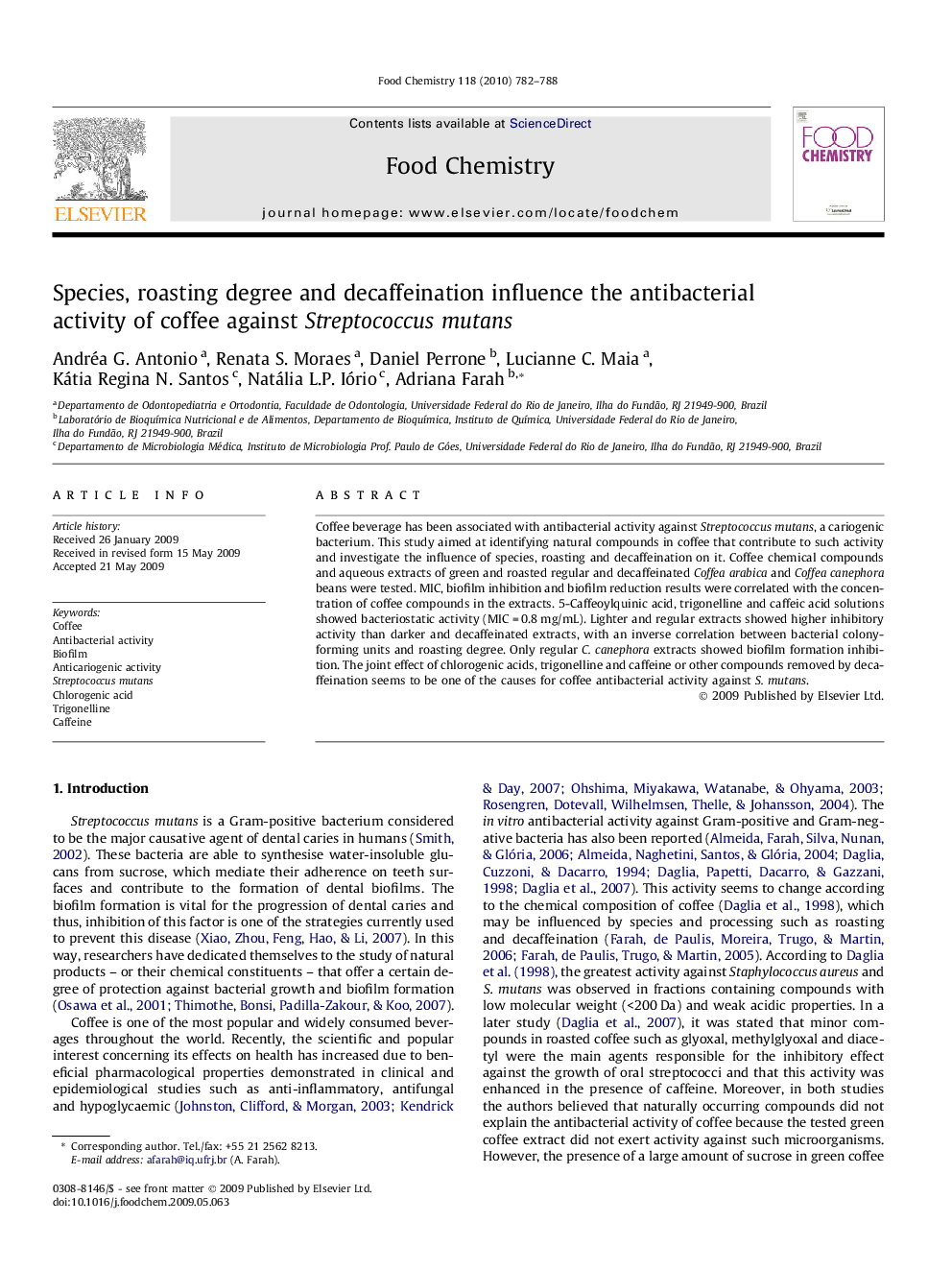| Article ID | Journal | Published Year | Pages | File Type |
|---|---|---|---|---|
| 1187277 | Food Chemistry | 2010 | 7 Pages |
Coffee beverage has been associated with antibacterial activity against Streptococcus mutans, a cariogenic bacterium. This study aimed at identifying natural compounds in coffee that contribute to such activity and investigate the influence of species, roasting and decaffeination on it. Coffee chemical compounds and aqueous extracts of green and roasted regular and decaffeinated Coffea arabica and Coffea canephora beans were tested. MIC, biofilm inhibition and biofilm reduction results were correlated with the concentration of coffee compounds in the extracts. 5-Caffeoylquinic acid, trigonelline and caffeic acid solutions showed bacteriostatic activity (MIC = 0.8 mg/mL). Lighter and regular extracts showed higher inhibitory activity than darker and decaffeinated extracts, with an inverse correlation between bacterial colony-forming units and roasting degree. Only regular C. canephora extracts showed biofilm formation inhibition. The joint effect of chlorogenic acids, trigonelline and caffeine or other compounds removed by decaffeination seems to be one of the causes for coffee antibacterial activity against S. mutans.
